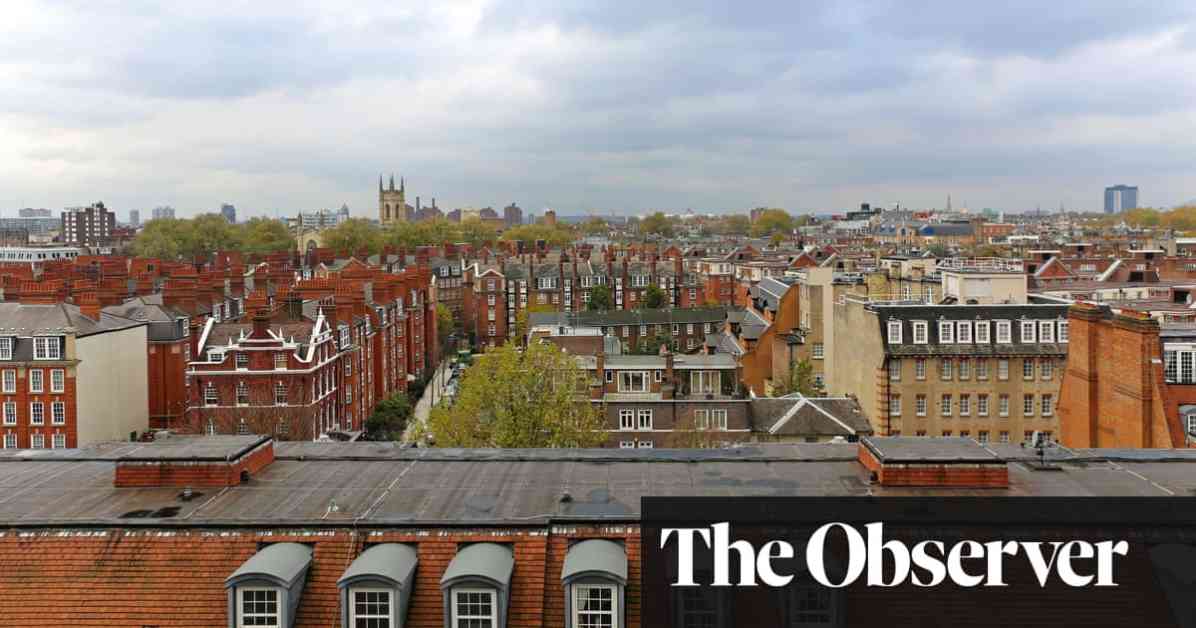Former Sunak Adviser Urges Labour to Introduce a Wealth Tax on Housing
Council tax and stamp duty have long been criticized as unfair and unpopular taxes that disproportionately burden certain homeowners. Tim Leunig, the economist behind the Covid furlough scheme and former adviser to Rishi Sunak, has called for a radical overhaul of the current system. He suggests abolishing council tax and stamp duty in favor of proportional property taxes that would better reflect the wealth of homeowners.
Calls for Tax Reform
As the chancellor, Rachel Reeves, considers potential tax increases for the upcoming autumn budget, there is growing pressure from various political figures to address the inadequacies of the current tax system. Leunig argues that there is no justification for retaining council tax, which currently results in disparities such as a terraced house in Burnley paying more than a mansion in Kensington. The outdated nature of council tax, which is based on property prices from 33 years ago, has been a point of contention among economists and policymakers alike.
The Institute for Fiscal Studies (IFS) has criticized the reliance on property values from the 1980s, describing it as a nonsensical approach to taxation. With wealth being under-taxed compared to income, there is a consensus that a new system is necessary to address these disparities. Stamp duty, another contentious tax, has been singled out by the IFS as one of the most economically damaging levies imposed by the government, hindering growth and mobility in the housing market.
Proposed Changes
In a paper for the Onward thinktank, Leunig outlines a new system that would replace council tax with a levy on home values up to £500,000, with the revenue going towards funding local councils. This levy would be set at a level to match the existing revenue generated by council tax. Additionally, a national annual levy would be imposed on properties valued above £500,000, gradually phasing out the need for stamp duty.
Under this proposed system, poorer areas with lower property values would contribute to local services, while wealthier areas with higher property values would contribute more to national revenue. By shifting the tax burden from council tax and stamp duty to proportional property taxes, Leunig believes the system would be fairer and more conducive to economic growth.
Impact on Economic Growth
Leunig emphasizes the detrimental effects of council tax and stamp duty on economic growth, citing them as hindrances to mobility and efficiency in the housing market. The current system not only distorts property values but also discourages individuals from moving to more suitable homes or locations. By implementing proportional property taxes, Leunig argues that it would be easier and more cost-effective for individuals to relocate for job opportunities or family reasons.
The regressive nature of council tax is highlighted in Leunig’s report, which points out the discrepancies in tax payments between different regions. For example, a band D home in Blackpool pays significantly more in council tax than a similar property in Westminster. This disparity underscores the need for a more equitable and transparent tax system that reflects the true value of properties.
Stamp duty’s impact on housing transactions is also a cause for concern, particularly in regions where property values exceed the £250,000 threshold. The infrequency of property sales in these areas indicates a lack of mobility and turnover in the housing market, which can have broader implications for economic growth and development.
Proposed Tax Structure
Leunig’s proposed tax structure includes a minimum payment of £800 for any property, ensuring that even the lowest-valued homes contribute to the tax system. An average rate of 0.44% would replace current council tax income, with a national rate applied to properties valued above £500,000. For properties between £500,000 and £1 million, the tax rate could be set at 0.54%, increasing to 0.81% for properties valued above £1 million.
The introduction of these proportional property taxes aims to create a fairer and more efficient tax system that aligns with the wealth of homeowners. By shifting the tax burden from council tax and stamp duty to property values, the proposed system seeks to promote economic growth and mobility in the housing market.
Calls for Reform
Leunig is not alone in his call for council tax reform and higher taxes on wealth. Prominent figures such as Patrick Diamond, who worked for Tony Blair and Gordon Brown, have also advocated for a revaluation of council tax to address the economic and ethical imperatives of wealth taxation. As Keir Starmer emphasizes economic growth in his plans to revive public services, the need for tax reform becomes increasingly urgent.
The proposals put forth by Leunig and others underscore the need for a comprehensive overhaul of the current tax system to create a fairer and more equitable society. By replacing council tax and stamp duty with proportional property taxes, the aim is to not only address existing disparities but also stimulate economic growth and mobility in the housing market.
In conclusion, the introduction of a wealth tax on housing represents a significant departure from the current tax system and offers a more progressive and efficient approach to taxation. By shifting the tax burden to reflect property values, the proposed reforms aim to create a fairer and more transparent system that benefits both homeowners and the broader economy. As policymakers consider tax reforms in the coming months, the ideas put forth by Leunig and others provide a compelling vision for a more equitable and sustainable tax system.












